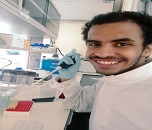About Conference
Conference Series LLC Ltd. is pleased to welcome you all to Annual Congress on Biofuels and Bioenergy during December 07-08, 2022 Paris, France. The conference mainly focuses on the theme “Emerging world with bioenergy”. Biofuels Meet 2022 provides a unique opportunity for the participants with various backgrounds to share their research ideas and to learn from other colleagues about modern scientific improvements in the field of Biofuels and Bioenergy. Our objective is to empower the appealing research field alongside the need of commercialization by giving a chance to meet the specialists and Business entrepreneurs in the field of Biofuels and Bioenergy.
Why to attend?
Biofuels Meet 2022 is a platform to meet enthusiast leaders world’s top research scholars, Fuel Engineers, chemical engineers, Aviation and Automobile industrialists, Microbiologist, Biotechnologist, Biochemist, and immense industrialist through the research talks and shows and encourage many novel processes of production and scale-up of Renewable Energy. This conference will play a key role which allows the latest techniques and modern methodology in the field of Biofuels and Bioenergy. This conference covers all the major topics that come across like Biofuels, Bioenergy, Renewable energy, Advanced biofuel, Biomass, Green energy, Biodiesel, Biogas, Biorefineries, Biomass technologies, Bio alcohol and bioethanol, Production of Biofuels, Green chemistry, Process technologies for Biodiesel in different fields.
Our final agenda will focus on the panel discussion, meetings and scientific session pertaining to recent advancements and emerging methodologies which makes our event a grand success.
Target audiences:
• Fuel engineers
• Chemical engineer
• Technical staff of Chemical engineers
• Biochemists, Microbiologists and Biotechnologists
• Engineers and Delegates from Aviation and Automobiles Companies
• Research scholars
• Biofuels Professors
• Bioenergy Students
• New entrepreneurs
• Immense industrialists
• Scientists
• Academicians
Scientific Sessions
Session 1: Biofuels:
Biofuels, unlike alternative Renewable Energy sources, Biomass is often born-again directly into Liquid fuels - Biofuels - for our transportation desires (cars, trucks, buses, aero planes, and trains). The two most typical forms of biofuels are alcohol and biodiesel. Ethanol is an alcohol, identical found in brew and wine. It’s created by fermentation any biomass high in carbohydrates (starches, sugars, or celluloses) through a method almost like production brew. Ethyl alcoholism usually used as a fuel additive to chop down a vehicle's carbon monoxide gas and other smog-causing emissions.
Session 2: Bioenergy:
Bioenergy is renewable energy created from natural, biological sources. Several natural sources, such as plants, animals, and their by-products, are often valuable resources. Trendy technology even makes landfills or waste zones potential bioenergy resources. It can be accustomed to being a property power supply, providing heat, gas, and fuel. Because the energy contained in sources like plants is obtained from the sun through the chemical process.
Session 3: Renewable Energy:
Renewable energy is electricity that's collected from renewable sources, which might be patently replenished on a person's timescale, consisting of daylight, wind, rain, tides, waves, and energy heat. Renewable strength often offers power in four important areas: energy era, air and water heating/cooling, transportation, and rural (off-grid) electricity offerings. Exploitation renewable could also be seen in the day once day lifestyles basically in four areas of energy technology.
Session 4: Advanced Biofuels:
Advanced Biofuels is the second-generation biofuels, square measure fuels which will be factory-made from varied styles of non-food biomass. Biomass during this context suggests that plant materials and animal waste used particularly as a supply of fuel. First-generation biofuels are made of the sugars and vegetable oils found in food crops exploitation customary process technologies.
Session 5: Biomass:
Biomass is a trade term for obtaining energy by burning wood, and alternative organic matter. Burning biomass releases carbon emissions, however, has been classed as a renewable energy supply within the EU and international organization legal frameworks, as a result of plant stocks are often replaced with new growth. It’s become common among coal power stations that switch from coal to biomass so as to convert to renewable energy generation while not wasting existing generating plant and infrastructure.
Session 6: Green Energy:
Green Energy might be a group of renewable energy and represents those renewable energy resources and technologies that supply the most effective environmental profit. Though the impacts are small, some renewable energy technologies can have an impact on the environment. As an example, large electricity resources can have environmental trade-offs on such issues as fisheries and land use.
Session 7: Bio-Diesel:
Biodiesel is an alternate fuel almost like standard or ‘fossil’ diesel. Biodiesel is often created from straight edible fat, animal oil/fats, animal oil and waste vegetable oil. The method wont to convert these oils to Biodiesel is named Transesterification. This method is represented in additional detail below. The most important potential supply of appropriate oil comes from oil crops like rapeseed..
Session 8: Bio-Refineries:
Biorefinery may be a facility that integrates biomass conversion processes and instrumentality to supply fuels, power, heat, and added chemicals from biomass. The biorefinery conception is analogous to today's oil refinery that produces multiple fuels and merchandise from crude oil.
Session 9: Biogas:
Biogas generally refers to a combination of various gases made by the breakdown of organic matter within the absence of a chemical element. Biogas is often created from raw materials like agricultural waste, manure, municipal waste, stuff, sewage, inexperienced waste or garbage. Biogas may be a renewable energy supply. Biogas is often created by anaerobic digestion with archaebacteria or anaerobic organisms that digest material within a closed system.
Session 10: Biomass Technologies:
Biomass technologies, combustion, and high-efficiency chemical change systems were specially developed to be incorporated into the various completely different stages concerned in energy recovery from biomass. These systems and elements are tailored to be used in many various countries around the world and designed for a large type of fuels. This broad range of expertise suggests that we will offer energy production systems that may offer far more than simply electricity.
Session 11: Production of Biofuels:
Production of Biofuels is that the method of manufacturing the biofuel, biodiesel, through the chemical reactions Transesterification and esterification. This involves vegetable or animal fats and oils being reacted with short-chain alcohols (typically methyl alcohol or ethanol). The alcohols used ought to be of low mass, ethyl alcohol being one among the foremost used for its low price.
Session 12: Green Chemistry:
Green chemistry conjointly referred to as property chemistry, is a section of chemistry and chemical engineering centred on the planning of merchandise and processes that minimize the utilization and generation of risky substances. Whereas environmental chemistry focuses on the consequences of polluting chemicals on nature, inexperienced chemistry focuses on the environmental impact of chemistry, together with technological approaches to preventing pollution and reducing consumption of renewable resources.
Session 13: Process Technologies for Biodiesel:
Process Technologies for Biodiesel in embodiments of the current invention, systems for manufacturing a biodiesel product from multiple feedstock’s might embrace a biodiesel reactor, a decanter, a flash evaporator and a distillation column. In alternative embodiments of the current invention, a method for manufacturing a biodiesel includes distilling a biodiesel reaction product to get rid of tocopherols and alcohol..
Session 14: Bio-alcohol and Bioethanol:
Bio-alcohol and Bioethanol is created from sugar/starch from crops like sugarcane and corn severally. Sugar contained in these crops is fermented anaerobically by micro-organisms resulting in the initial generation of biofuels (bio alcohols like bioethanol). The alcohol is often associate additive to petrol/gasoline and might, therefore, facilitate the conservation of fuels.
Market Analysis
BIOFUELS MEET 2022 welcomes all the attendees, presenters, associations and exhibitors from all over the world to Amsterdam, The Netherlands. We are delighted to invite you all to attend the Annual Congress on Biofuels and Bioenergy” which is going to be held December 07-08, 2022 in Paris, France.The congressional committee is gearing up for an exciting and informative conference program including keynote presentations, plenary lectures, young research forum, symposia, and workshops on informative topics, poster presentations and various program for participants from all over the world. We heartily invite participants from all over the globe to take part in BIOFUELS MEET 2022, to share meaningful experience from scholars around the world. We look forward to seeing you in Paris, France.
For more information: https://biofuels.insightconferences.com/
Importance and Scope:
BIOFUELS MEET 2022 with the theme “Emerging world with Bioenergy” aims to share new ideas and new technologies and to optimize and enhance existing systems and it has the latest renewable source for liquid transportation. As per reports by the international energy, agency indicates that global advanced biofuels operating capacity will double from 2 billion liters to 4 billion liters during 2013 to 2020, while global biofuels production would grow from 115 to 139 billion litters over the same period. New reports suggest that advanced biofuels now account for over half of newly installed Biofuels production capacity
This needs to triple by 2030 and rise five-fold by 2050 to 650bn litters/annum to meet the Paris goals.
















